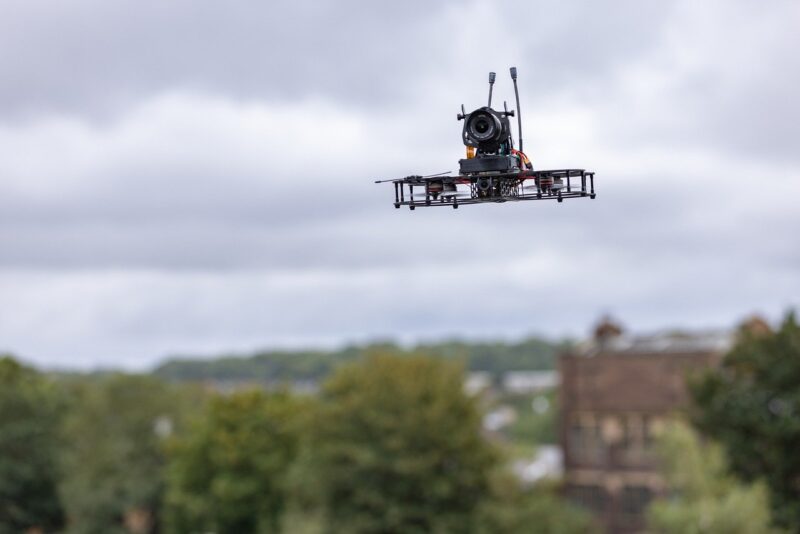The Rise of AI in Warfare: How Machines Are Redefining Conflict
November 17, 2024

Artificial Intelligence (AI) is revolutionizing how wars are fought, significantly altering the landscape of modern conflict. From autonomous drones conducting surveillance to algorithms assisting command decisions in real-time, AI technologies are redefining traditional military capabilities and strategies. In this comprehensive exploration of the intersection of AI and warfare, we will delve into the various applications of AI in the military, the ethical implications of warfare automation, and the potential future of AI in conflict.
1. The Evolution of Warfare and the Advent of AI
History shows that with every technological advancement, warfare evolves. The introduction of gunpowder, the steam engine, and airpower fundamentally changed combat dynamics. In this digital age, AI represents the next major leap.
AI can process vast amounts of data at speeds unattainable by humans, enabling military forces to make informed decisions rapidly. For instance, an AI-driven system can analyze complex battle scenarios, predict enemy movements, and recommend tactics, providing a strategic advantage to commanders on the battlefield.
2. Key Applications of AI in Modern Warfare
AI technologies are being integrated into various military applications, enhancing operational efficiency and effectiveness. Some of the most noteworthy applications include:
- Autonomous Drones: Military drones equipped with AI are utilized for reconnaissance, targeted strikes, and logistics. They can operate autonomously, making real-time decisions based on environmental data and mission parameters, thereby reducing the risk to human life.
- Predictive Analytics: AI systems can analyze patterns from historical data and current intelligence to predict enemy actions or potential threats. This capability enables preemptive strategies and improved situational awareness on the battlefield.
- Cyber Warfare: AI plays a crucial role in cybersecurity by identifying vulnerabilities, predicting attacks, and mitigating threats in real-time. AI algorithms can analyze network traffic patterns, detecting anomalies that may indicate cyber intrusions or malicious activities.
- Training and Simulation: Military training programs incorporate AI-driven simulations to create realistic combat scenarios. These simulations prepare soldiers for various situations by leveraging predictive modeling and immersive virtual environments.
The integration of AI in these applications not only saves time and resources but also enhances the precision and efficacy of military operations.
3. Benefits of Implementing AI in Warfare
While the implications of AI in warfare are complex, several benefits stand out. AI technologies:
- Increase Efficiency: With AI systems handling data analysis and operational tasks, military personnel can focus on higher-level strategic planning and decision-making processes, improving overall productivity.
- Enhance Accuracy: AI can reduce human errors associated with decision-making, leading to more precise military operations and minimized collateral damage. Targeting and strike accuracy can significantly improve, decreasing the likelihood of civilian casualties during operations.
- Aid Logistics and Supply Chain: AI tools optimize supply chain management, ensuring that troops receive necessary resources while reducing waste and improving inventory management, thus enhancing operational readiness.
- Support Strategic Planning: The capability to process vast amounts of data enables militaries to understand the battlefield landscape better, predict enemy behavior, and improve overall strategy formulation through intelligent frameworks.
These benefits demonstrate the potential of AI to enhance military operations significantly, ushering in a new era of combat.
4. Ethical and Legal Implications of AI in Warfare
The rise of AI in warfare is not without controversy. Ethical concerns surrounding autonomous weapons and decision-making algorithms raise important questions about morality and accountability in conflict.
- Autonomous Weapons Systems (AWS): Unsurprisingly, the development of fully autonomous weapons raises significant moral dilemmas. Who is held accountable for actions taken by such systems? In instances of unintentional harm or violation of the laws of war, determining responsibility becomes complex.
- Loss of Human Oversight: The reliance on AI for critical decision-making in combat situations raises concerns about reducing human oversight. Rapid automation in warfare might lead to decisions being made without human intuition or ethical considerations, posing risks to compliance with international humanitarian law.
- Acceleration of Conflict: The potential for AI to speed up engagement and combat decisions could lead to unintended escalations and conflicts. Militaries may face pressure to use AI capabilities quickly, overriding careful assessment and deliberation, which could lead to tragic outcomes.
As societies embrace AI in warfare, addressing these ethical questions becomes increasingly crucial to maintain human values and accountability during conflicts.
5. The Future of AI in Warfare
The landscape of warfare will undoubtedly continue evolving with advancements in AI technologies. As countries invest in research and development, it is likely that we will witness:
- Increased Global Competition: Nations that successfully integrate AI technologies will gain a significant advantage in military capabilities, leading to a new arms race focused on AI-driven solutions. Competition could also escalate tensions across geopolitical landscapes as countries vie for technological supremacy.
- Development of International Frameworks: To mitigate the potential risks associated with AI in warfare, global leaders will need to collaborate on creating international standards and regulations governing the use of AI in military applications, ensuring compliance with ethical and legal norms.
- Enhanced Collaboration Between Militaries and Tech Firms: Collaboration between the defense sector and technology companies will be essential in developing AI applications that adhere to ethical frameworks and support the responsible use of AI in military operations.
As we look ahead, the role of AI in warfare will be a double-edged sword, offering unprecedented advantages while raising ethical dilemmas that demand thoughtful consideration.
Conclusion
AI’s influence in warfare introduces a new chapter in military history, reshaping how conflicts are waged and managed. While the benefits of enhanced efficiency, accuracy, and data analysis present significant advantages, the ethical dilemmas and potential consequences must not be overlooked. The military community must navigate the complex terrain of AI integration responsibly while striving to uphold the principles of ethics, humanity, and accountability. As we venture into this era of automated warfare, the trajectory of AI will undoubtedly influence the future of global conflict.
The challenge lies in harnessing the transformative capabilities of AI while ensuring that the decision-making processes remain grounded in human judgment and moral responsibility.








